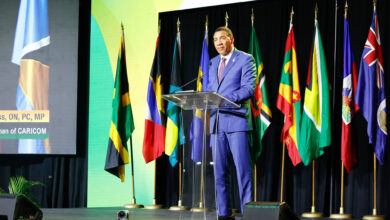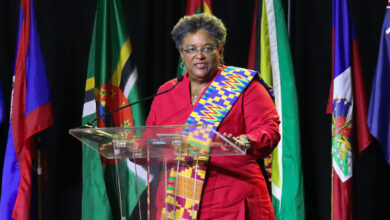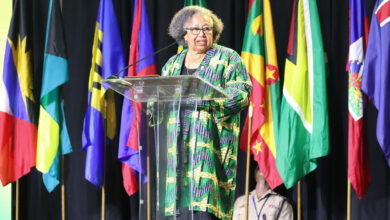The Council for Trade and Economic Development (COTED) has responsibility for overseeing all trade and economic development issues and covers all economic sectors of the Community.
This Meeting, its ninth focussed on the agriculture sector in addition to the establishment of the CARICOM Single Market and Economy (CSME). Attention was also paid to CARICOM external economic and trade relations and intra-regional trade arrangements.
While seeking to ensure that the key elements for the establishment of the CSME are in place namely, the following are being attended to:
- the integration of the nine Protocols into a revised Treaty;
- the implementation of Protocol II to provide for rights of establishment, provisional of services and movement of capital.
The Meeting sought to review the implementation of the transformation programme for agriculture, agreed to by the Heads of Government in 1996, and now reflected in Protocol V on Agriculture Policy. It sought to determine a strategy that would better ensure the competitiveness of Community’s agricultural products both primary and processed.
At the same time, Ministers discussed the Community’s trade agreements already entered into with Venezuela, Colombia and the Dominican Republic, and gave consideration to new initiatives with CUBA and in the ACS. Considerable attention was given to the Region’s preparation for multilateral trade negotiations in both the WTO and FTAA. The recent improvement in the Caribbean Basin Initiative by the United States was also reviewed.
On the establishment of CSME, the major hurdle, that of the completion of the nine Protocols has been achieved. Signature is almost complete with four Protocols already being provisionally applied, three others requiring the signature of one Member State and the last two requiring the signature of two Member States.
Attention is now being paid to the final stage of the Treaty Revision process, that is, the integration of Protocols into a single Treaty. CARICOM’s intention is for that process to be completed by the end of this year to synchronise with the time-table for establishing the Caribbean Court of Justice (CCJ).
Now that CARICOM is well on the way to establishing the legal framework, the focus now is on the implementation of Protocols, concentrating first on Protocol II under which CARICOM has to ascertain what restrictions are in place in Member States and establish programmes, with the approval of the Conference, for the removal of those which as determined cannot immediately be removed.
This Meeting of the COTED was preceded by the First Meeting of Officials to negotiate the programmes.
In the case of the Agriculture Sector consideration was given to initiatives being taken by regional Institutions – CARICOM Secretariat, CARDI, UWI, CDB, IICA, FAO – to support national measures being implemented to achieve competitiveness particularly in –
- marketing and agri business;
- agricultural policy development;
- human resource development;
- technology generation, etc.
Attention was also given to specific sectors namely Fisheries, Forestry, Sugar, Poultry, Oils and Fats.
Decisions were taken regarding support to the agriculture sector, given the Region’s human and financial constraints.
These related specifically to –
- priority activities, e.g., selected commodities;
- market information systems;
- joint marketing;
- sanitary and phytosanitary measures.
COTED Ministers also reaffirmed the continuing importance of REPAHA to the development of the Region’s livestock sector.
On External Relations, the COTED took decisions to ensure –
(i) external and regional arrangements are consistent and mutually reinforcing;
(ii) effective use of the limited resources within the region was being urged. Additionally, it was recognised that there needs to be closer collaboration between the Secretariat, RNM and Member States, especially as the Region moves into services negotiation which for the Community is a relatively new area. It has been agreed that this requires one central technical body to inform the process.
The COTED continued its oversight of the Region’s common market arrangements – the CET and Rules of Origin – which have been carried forward into Protocol IV – Trade Policy. This seeks to ensure –
(i) that no unauthorised trade restrictions are in place;
(ii) that the system gives support to regional producers and manufacturers while ensuring consumers are assured of regional supplies at reasonable prices and standards.
Conclusion
All Member States felt that this was a very successful Meeting and decisions have been made which will guide the Way Forward into the full Single Market and Economy.




